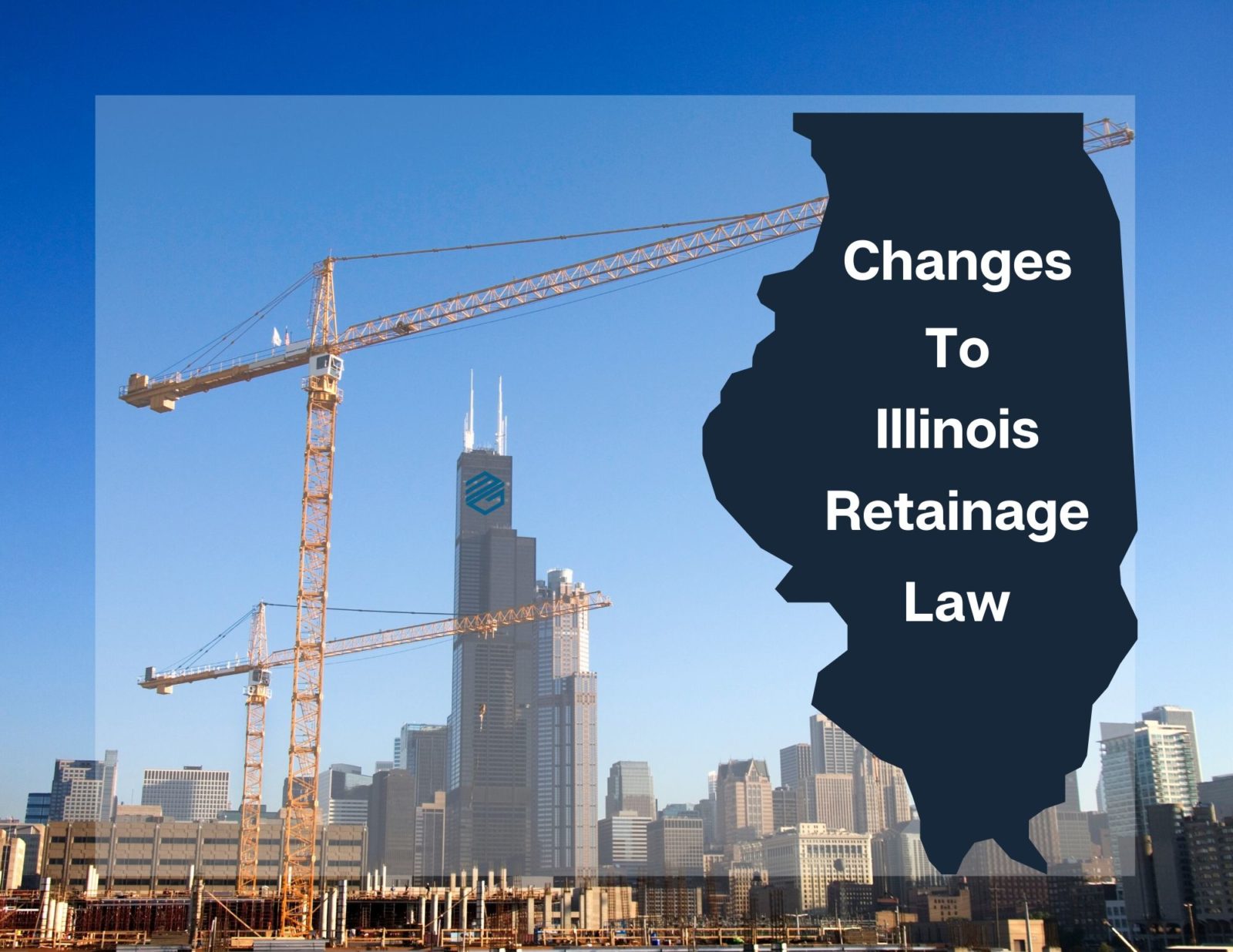I have said it many times, but construction is a cash intensive business. Few things can make or break a contractor faster than cash flow. That is why retainage laws are so important. The recent Illinois retention law change now has Illinois joining many other states in enacting retainage laws that limit the amount of retainage that can be held on contractors and subcontractors.
Illinois New Retainage Law
This legislation was signed into law on August 28, 2019 by Governor J.B Pritzker. The law is an amendment to the State Prompt Payment Act, which governs the timing of payments. The whole Act can be found here. The law applies to contracts entered into after August 28, 2019 but not before. The actual law states:
“No construction contract may permit the withholding of retainage from any payment in excess of the amounts permitted in this Section. A construction contract may provide for the withholding of retainage of up to 10 percent of any payment made prior to the completion of 50 percent of the contract. When a contract is 50 percent complete, retainage withheld shall be reduced so that no more than 5 percent is held. After the contract is 50 percent complete, no more than 5 percent of the amount of any subsequent payments made under the contract may be held as retainage.”
Why this New Law is Important
This law is important to contractors as it limits the amount of retainage that an owner or another contractor may hold to a maximum of 10%. Once the project reaches 50% completion, the maximum that can be held is 5%. This should help contractors improve their cash flow as most contractors have to finance retainage either internally or through a bank line of credit. Reducing retainage will therefore help cash flow.
Exclusions
Since the law is an amendment to the existing Prompt Payment Act, it is important to note that the Prompt Payment Act and therefore the new law excludes contracts involving the use of public funds. However, many public projects already hold less, if any retainage. Also excluded from this law are residential properties of twelve units or less. In essence, that excludes most home builders and makes this a commercial construction law.
Interest Payments
Owners and contractors should also be aware that the Prompt Payment Act and therefore this law includes interest payments if timely payments are not made. This includes the payment of retainage. The penalty is 10% of the unpaid balance which can be significant.
Individual Contracts
Another important consideration is that this law applies to each individual contract. For example, let us assume that an Owner has a $1 million contract with a General Contractor. The project is 75% complete. The General Contractor has a subcontract with local roofing contractors for $100,000 and work on that scope has not started. The general contractor can still hold 10% retainage on the roofer because that subcontract has not passed the 50% threshold even though the contract between the Owner and General Contractor has passed the threshold.
Overall the Illinois retention law change should benefit most contractors. However, retention reductions could be problematic for Owners and Contractors who have problems with their lower tier contractors. We always recommend protecting yourself from these issues through surety bonds and/or subcontractor default insurance. You can read more about these products here. Should you have any questions or need assistance, reach out to MG Surety Bonds and our professional staff. We want to be your surety bond broker for life!

